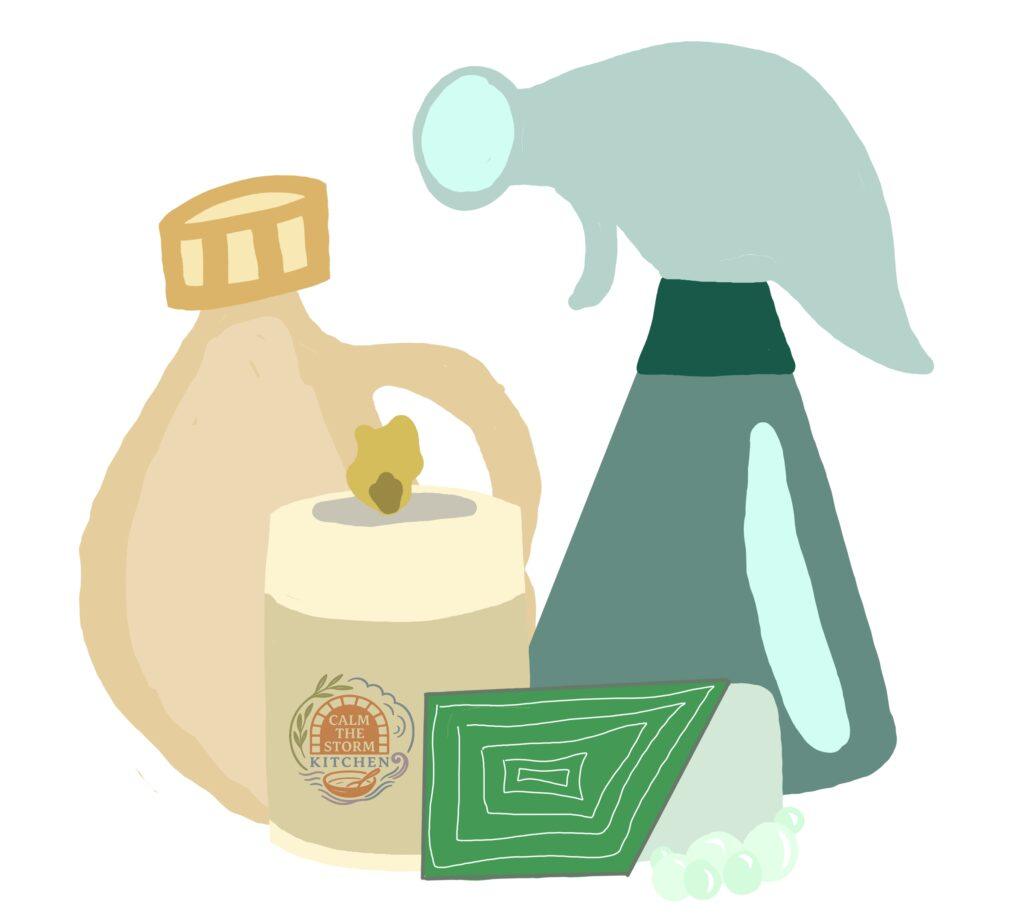Everyday Items Contributing To Your Inflammation
You will be shocked at the poisons lurking in products you use every day!

When you’re managing histamine intolerance, it’s easy to focus solely on food. But what many people don’t realize is that non-food exposures, like synthetic fragrances and phthalates, can also add to your histamine load, pushing you closer to a reaction.
Fragrance is everywhere: in cleaning products, laundry detergent, candles, personal care items, and even some “unscented” products. These scents may smell pleasant, but what they really contain is often a mix of undisclosed chemicals, including phthalates, which are known endocrine disruptors and can play a role in immune system dysregulation.
For those navigating histamine intolerance, every little thing that stimulates the immune system matters. That’s why cutting back on artificial fragrance isn’t just a “clean living” choice.
What Are Phthalates and Where Are They Found?
- Phthalates are chemical plasticizers used to make fragrances stick and last longer.
- They are often hidden under the word “fragrance” or “parfum” on product labels.
- According to the Environmental Working Group and current research, these chemicals can disrupt hormones and promote inflammation (Sathyanarayana, 2008; Zota et al., 2014).
- These chemicals can cause many different systemic issues including infertility (Hlisníková et al., 2020).
Fragrance and Histamine: What’s the Connection?
- Artificial fragrances can stimulate mast cells, the immune cells that release histamine, especially in sensitive individuals.
- Exposure can lead to headaches, rashes, sneezing, brain fog, and even GI issues
- Studies show that environmental toxins, including airborne irritants, may contribute to mast cell activation and overall immune dysregulation (Theoharides et al., 2015).
Reducing Exposure
Overall Tips:
- Choose “fragrance-free” instead of “unscented” (check ingredient lists!).
- Switch to natural cleaning products or make your own.
- Avoid scented candles, plug-ins, perfumes/colognes and room sprays.
Swaps We Made
We started making changes to what we buy, use, and consume even before we had ever heard of histamine intolerance. What sparked that shift? Having our first child.
When you become a parent, you quickly notice that most baby products are labeled unscented, fragrance-free, alcohol-free, paraben-free; the list goes on. That made me pause and ask: Why are these ingredients left out of baby products? And if they’re not safe for babies, should any of us be using them at all?
That curiosity turned into conviction. I also realized how physically close a newborn is to their parents, especially during skin-to-skin contact and breastfeeding. It didn’t sit right with me to have strong-smelling products or potentially irritating chemicals on my skin. So I stopped using conventional soaps, perfumes, deodorants — anything fragranced. Not only did this reduce exposure for my baby, but it also began to support my own healing in ways I didn’t expect.
Here are a few simple swaps we made that I’d wholeheartedly recommend:
First up: Dish Soap
We switched from popular conventional brands to Attitude Unscented Dish Soap. We love this brand because you can purchase it in a normal sized bottle, but also in bulk with less plastic, shipping, and cost. This change matters because dish soap residue can sometimes leave a film on dishes and utensils—meaning your food might absorb tiny amounts of those chemicals. While some suggest this could contribute to issues like SIBO (small intestinal bacterial overgrowth), that theory isn’t yet backed by solid evidence. Still, choosing a unscented dish soap with cleaner ingredients gives us peace of mind and reduces unnecessary exposure to fragrances and additives.
Next: Hand and Body Soap
We made the switch to Dr. Bronner’s Unscented Bar Soap. It’s simple, gentle, and free from added fragrances, making it a safer choice for sensitive skin and reducing the chemical load on our bodies. Plus, as a bar soap, it has fewer preservatives and packaging than liquid soaps, which fits with our goal to keep things as natural and clean as possible. If you like liquid better, they also sell a liquid version.
Your clothes, blankets, towels, etc. touch you and your children at all hours of the day.
For laundry detergent, we switched to Ecos Free & Clear Laundry Sheets.
These laundry sheets are fragrance-free and gentle on sensitive skin, making them a great choice for anyone managing histamine intolerance. They dissolve easily, are eco-friendly, and help eliminate the lingering scents and harsh chemicals often found in conventional detergents. This simple swap has made a noticeable difference in reducing skin irritation and overall chemical exposure in our home. Again, they also have liquid version if that’s more your style.
We also swapped out conventional fragranced deodorant for Tom’s of Maine Unscented.
Fragrance-heavy deodorants sit on your skin all day, often in one of the most absorbent areas of the body. Switching to an unscented, aluminum-free option like Tom’s of Maine helped us reduce daily exposure to synthetic chemicals without sacrificing freshness. It’s a small change that supports both sensitive skin and overall well-being.
For shampoo and conditioner, we have loved making the switch to Attitude Sensitive Unscented Shampoo and their matching conditioner.
They’re made with clean ingredients, gentle enough for the whole family, and offer great value, especially with the option to buy the shampoo in bulk refill boxes! We’ve experimented with other options, like shampoo bars and even using pure coconut oil, but found they didn’t work as well for our hair types across the board. These Attitude products have been the most consistent and gentle choice for us.
Lastly, we got rid of any and all fragranced candles, room sprays, and perfumes/colognes. These items may seem harmless, but they often contain a cocktail of synthetic chemicals and phthalates that linger in the air and on fabrics and they can quietly add to your histamine load. If do you like candles consider some natural beeswax candles like these votive or tapered ones. Sadly, you also may need to replace real floral arrangements or houseplants with fake ones if their pollen bothers you.
Removing fragrance and phthalates may seem like a small change, but it can significantly lighten your histamine load — helping you feel clearer, calmer, and more in control of your health.
Well, are you surprised by how much fragrance can impact your health?
Have you already made any of these swaps or are you thinking about it now? I’d love to hear from you! Share your thoughts, your favorite fragrance-free products, or any questions you have in the comments below. Let’s keep learning and healing together.
Do you not know that your body is a temple of the holy Spirit within you, whom you have from God, and that you are not your own?
—1 Corinthians 6:19 (NABRE)


Leave a Reply